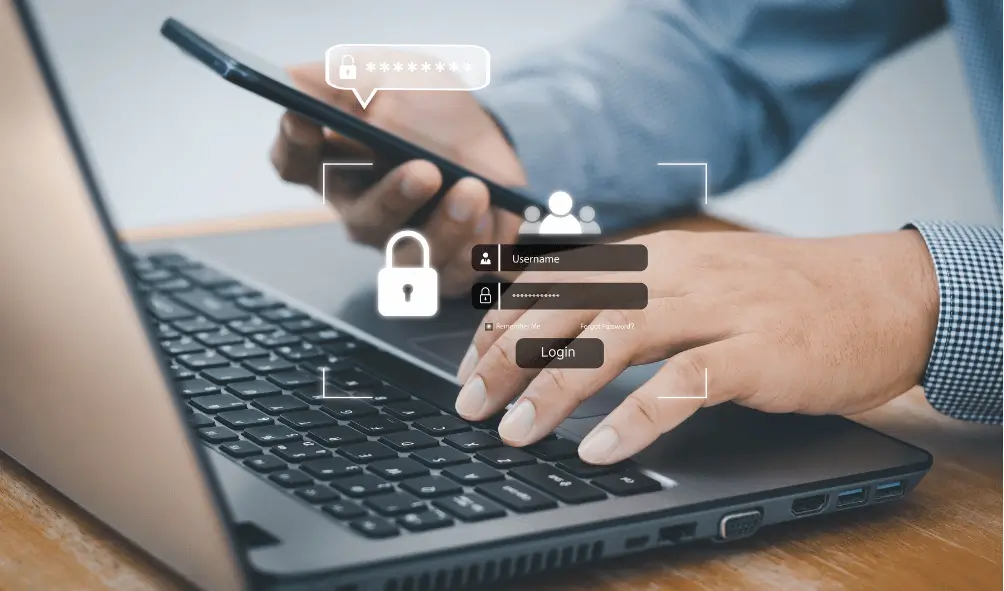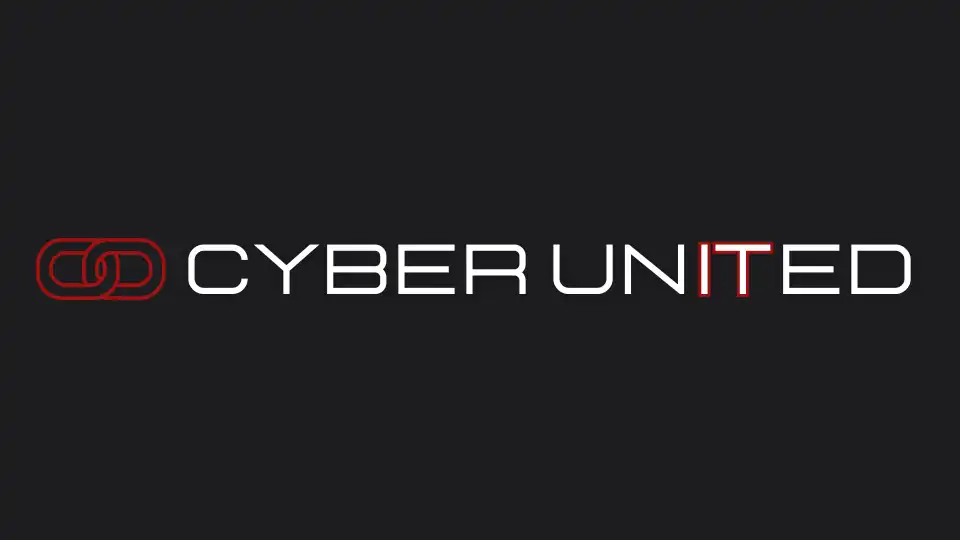
One of the most effective ways to enhance security is through multi-factor authentication (MFA). In this comprehensive guide, we’ll explore the importance of MFA, how it works, and why it should be an essential part of your organisation’s security strategy.
Whether you run a small business or a large enterprise, MFA can play a crucial role in protecting your systems, data, and users.
What is MFA (Multi-Factor Authentication)?
Multi-factor authentication (MFA) is a security measure that requires users to provide multiple forms of identification to verify their identity when accessing a system or account. Instead of relying solely on a password, MFA combines two or more authentication factors to ensure that only authorised individuals can gain access.
The three main types of authentication factors used in MFA are:
- Something you know: A password, PIN, or security question.
- Something you have: A physical device like a smartphone, security token, or smart card.
- Something you are: Biometrics, such as fingerprints, facial recognition, or voice identification.
By requiring at least two of these factors, MFA greatly reduces the risk of unauthorised access, even if one factor (such as a password) is compromised. The importance of MFA lies in its ability to add an extra layer of protection, making it significantly harder for cybercriminals to breach your systems.
Why is MFA Important?
The importance of MFA cannot be overstated in today’s digital environment. With the rise of cybercrime, relying on passwords alone is no longer enough to protect sensitive information. According to a report by the UK’s National Cyber Security Centre (NCSC), passwords are often weak, reused, or easily compromised, leaving businesses vulnerable to attack.
Here are key reasons why multi-factor authentication is essential for businesses of all sizes:
1. Enhances Security Beyond Passwords
Passwords are the most common form of authentication, but they’re also the most vulnerable. Employees often use simple, easily guessable passwords or reuse the same password across multiple accounts. This makes it easy for attackers to gain access through brute-force attacks, phishing, or password dumps from previous data breaches.
MFA adds an additional layer of security by requiring more than just a password. Even if a password is compromised, the attacker would still need access to the second or third factor (e.g., a phone or biometric data) to gain entry.
2. Mitigates Phishing Attacks
Phishing attacks remain one of the most prevalent cybersecurity threats. Cybercriminals often trick employees into revealing login credentials by impersonating legitimate entities in emails or on fake websites. However, with MFA in place, even if an employee falls victim to a phishing scam, the attacker cannot access the system without the additional authentication factor.
The importance of MFA becomes particularly clear in preventing phishing attacks, as it significantly reduces the likelihood of unauthorised access following a successful phishing attempt.
For more information on phishing threats, you can visit the Cyber Aware UK website, which provides guidance on keeping your business safe from online threats.
3. Reduces the Risk of Data Breaches
Data breaches can be catastrophic for businesses, leading to financial losses, legal liabilities, and reputational damage. A report from ICO UK shows that data breaches due to weak or stolen credentials are one of the leading causes of security incidents in the UK.
Implementing MFA can reduce the risk of data breaches by making it much harder for cybercriminals to access systems, even if login credentials are leaked or stolen.
4. Supports Regulatory Compliance
Many industries are subject to stringent data protection regulations, such as the General Data Protection Regulation (GDPR). Non-compliance with these regulations can lead to severe penalties and fines. The importance of MFA extends beyond just improving security; it can also help businesses comply with these regulations by ensuring that only authorised individuals have access to sensitive data.
Certain regulations may even require MFA as a part of their security protocols. For instance, GDPR mandates businesses to implement “appropriate technical and organisational measures” to protect personal data. By adopting MFA, companies can demonstrate that they are taking steps to secure personal data and meet compliance requirements.
5. Improves User Trust and Confidence
In an era where data privacy is a growing concern for consumers, implementing MFA can help build trust with your customers and clients. By demonstrating that you take security seriously and have implemented advanced measures like MFA, you show that your business is committed to protecting their personal information.
This trust is particularly important in sectors like finance, healthcare, and e-commerce, where sensitive data is frequently handled. Customers are more likely to do business with companies they trust to keep their information secure.
6. Safeguards Remote Working Environments
The shift to remote working has introduced new cybersecurity challenges. Employees working from home often access company networks and systems from unsecured personal devices and networks. This increases the risk of unauthorised access, especially if proper security measures are not in place.
The importance of MFA in a remote working environment is undeniable. By requiring employees to verify their identity through multiple factors, businesses can ensure that only authorised users can access critical systems, even when working remotely. This is particularly relevant in a post-pandemic world, where remote and hybrid working models are becoming the norm.
For businesses looking to enhance their remote working security, Cyber United offers tailored solutions to keep your remote workforce protected. Visit our Managed IT Services page to learn more.
How Does MFA Work?
The process of using multi-factor authentication can vary depending on the specific MFA solution in place, but the general process follows a similar pattern:
- Login Attempt: The user enters their username and password as usual.
- MFA Prompt: After successfully entering their credentials, the user is prompted to provide an additional authentication factor. This could be a one-time code sent to their mobile device, a fingerprint scan, or a security token.
- Verification: The system verifies the second factor. If correct, the user is granted access. If the second factor is incorrect or not provided, access is denied.
This extra layer of verification makes it much more difficult for attackers to gain access to sensitive systems, even if they have stolen login credentials.
Types of MFA
There are various methods for implementing multi-factor authentication in your business. Each method provides different levels of security, and the right choice will depend on your specific needs. Below are some common types of MFA:
1. SMS-Based MFA
One of the simplest forms of MFA, this method sends a one-time code to the user’s mobile phone via SMS. While easy to implement, SMS-based MFA is not the most secure option, as text messages can be intercepted by hackers.
2. Authenticator Apps
Mobile authenticator apps, such as Google Authenticator or Microsoft Authenticator, generate time-based one-time passwords (TOTPs) that expire after a short period. This method is more secure than SMS-based MFA because it relies on a separate app rather than a message that could be intercepted.
3. Biometric Authentication
Biometric MFA uses physical characteristics, such as fingerprints, facial recognition, or voice recognition, to verify a user’s identity. This method is highly secure, as biometric data is unique to each individual and difficult to replicate.
4. Hardware Tokens
Hardware tokens are physical devices that generate one-time passcodes. The user presses a button on the token, and it displays a code that they enter alongside their password. This method is highly secure but can be less convenient, as users need to carry the physical token with them.
5. Push Notifications
With push notifications, users receive a prompt on their mobile device asking them to confirm the login attempt. They can either approve or deny the request with a single tap. This method is secure and user-friendly, as it doesn’t require entering a code.
How to Implement MFA in Your Business
The importance of MFA is clear, but how can you effectively implement it in your business? Here are some key steps:
1. Evaluate Your Current Security Infrastructure
Before implementing MFA, assess your current security measures and identify areas where MFA would provide the most benefit. This could include employee logins, access to sensitive data, or customer-facing portals.
2. Choose the Right MFA Solution
There are many MFA solutions available, ranging from simple SMS-based options to more advanced biometric and token-based systems. Consider the level of security you need, as well as the ease of use for your employees or customers.
3. Integrate MFA with Existing Systems
Once you’ve chosen an MFA solution, you’ll need to integrate it with your existing systems. Most modern platforms, such as Microsoft 365, already support MFA and make it easy to enable. At Cyber United, we offer seamless MFA integration as part of our IT Security Solutions.
4. Train Employees and Communicate with Customers
It’s important to educate your employees about the importance of MFA and how to use it effectively. Similarly, if you’re implementing MFA for customer accounts, make sure they understand how the process works and why it’s necessary for their security.
5. Monitor and Update Your MFA Strategy
Cybersecurity is an ever-evolving field, and your MFA strategy should evolve with it. Regularly review and update your MFA policies to ensure they are keeping pace with new threats and technologies.
Conclusion
In conclusion, the importance of MFA in today’s digital world cannot be overstated. As cyber threats become more sophisticated, businesses must take proactive steps to protect their systems and data. Implementing multi-factor authentication is one of the most effective ways to safeguard against unauthorised access, data breaches, and cyberattacks.
At Cyber United, we understand the challenges businesses face in securing their digital assets. That’s why we offer comprehensive solutions that include MFA, IT security, and cloud backup services. To learn more about how we can help protect your business, visit our Cybersecurity Services page.
For further reading on MFA best practices, you can also explore resources from trusted authorities like the NCSC.
